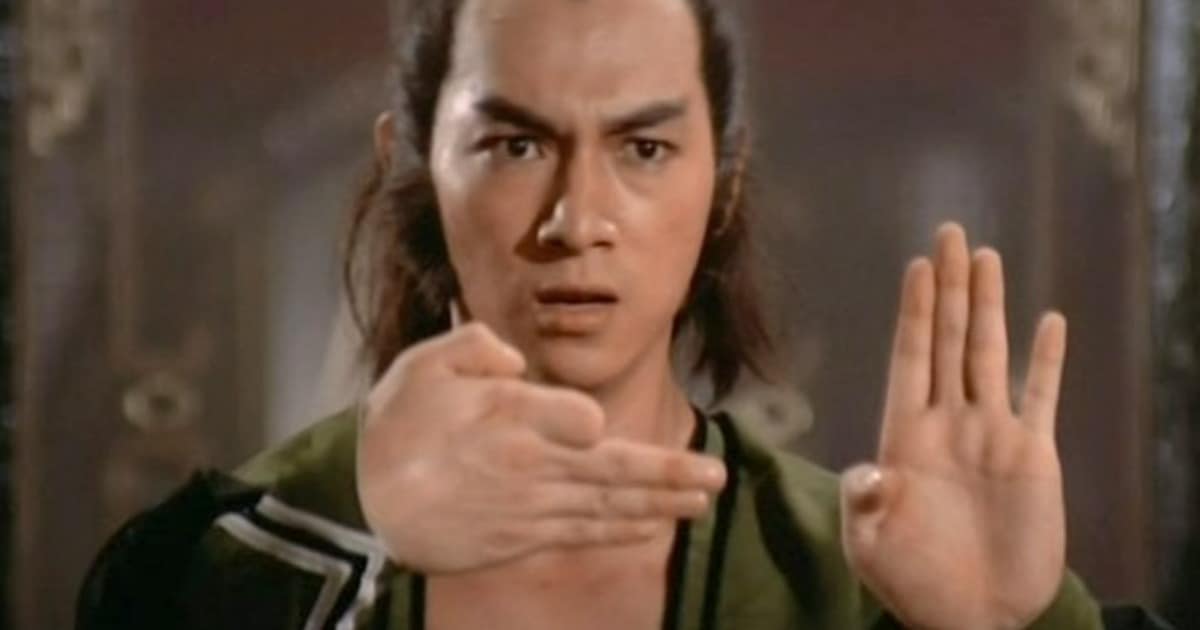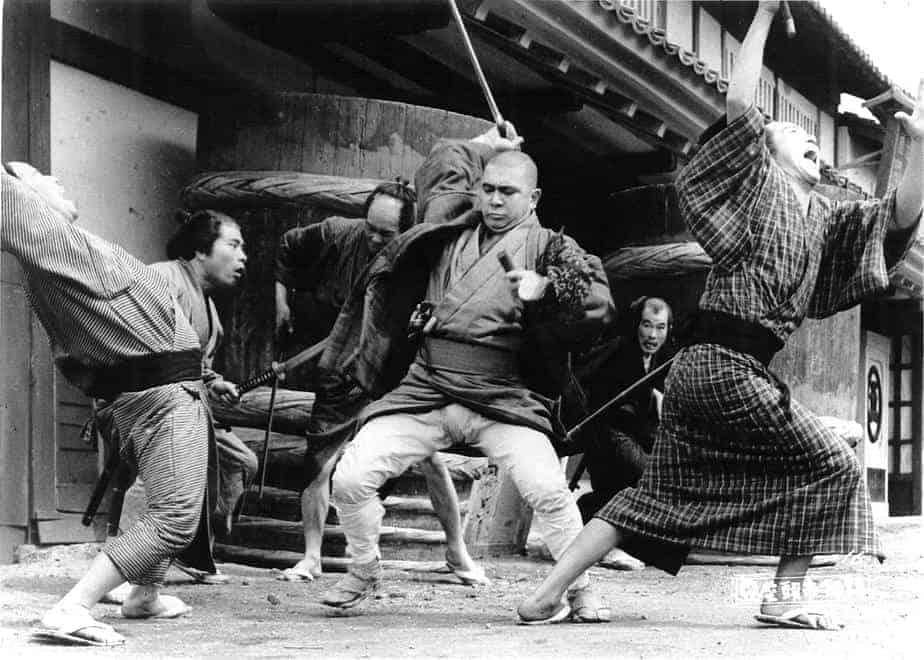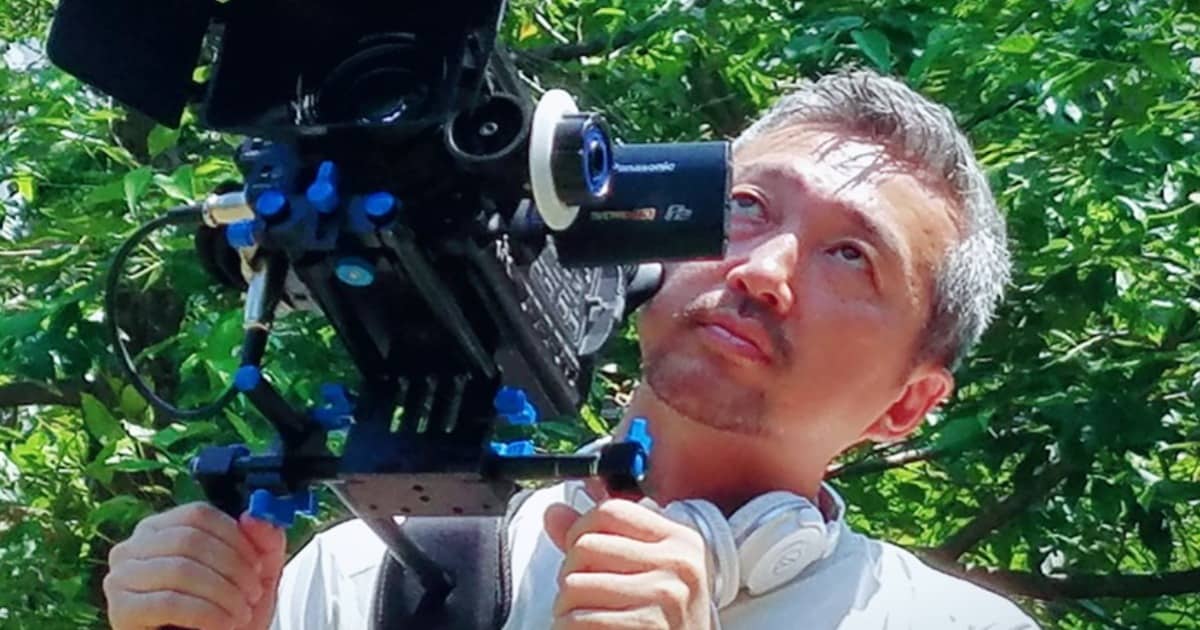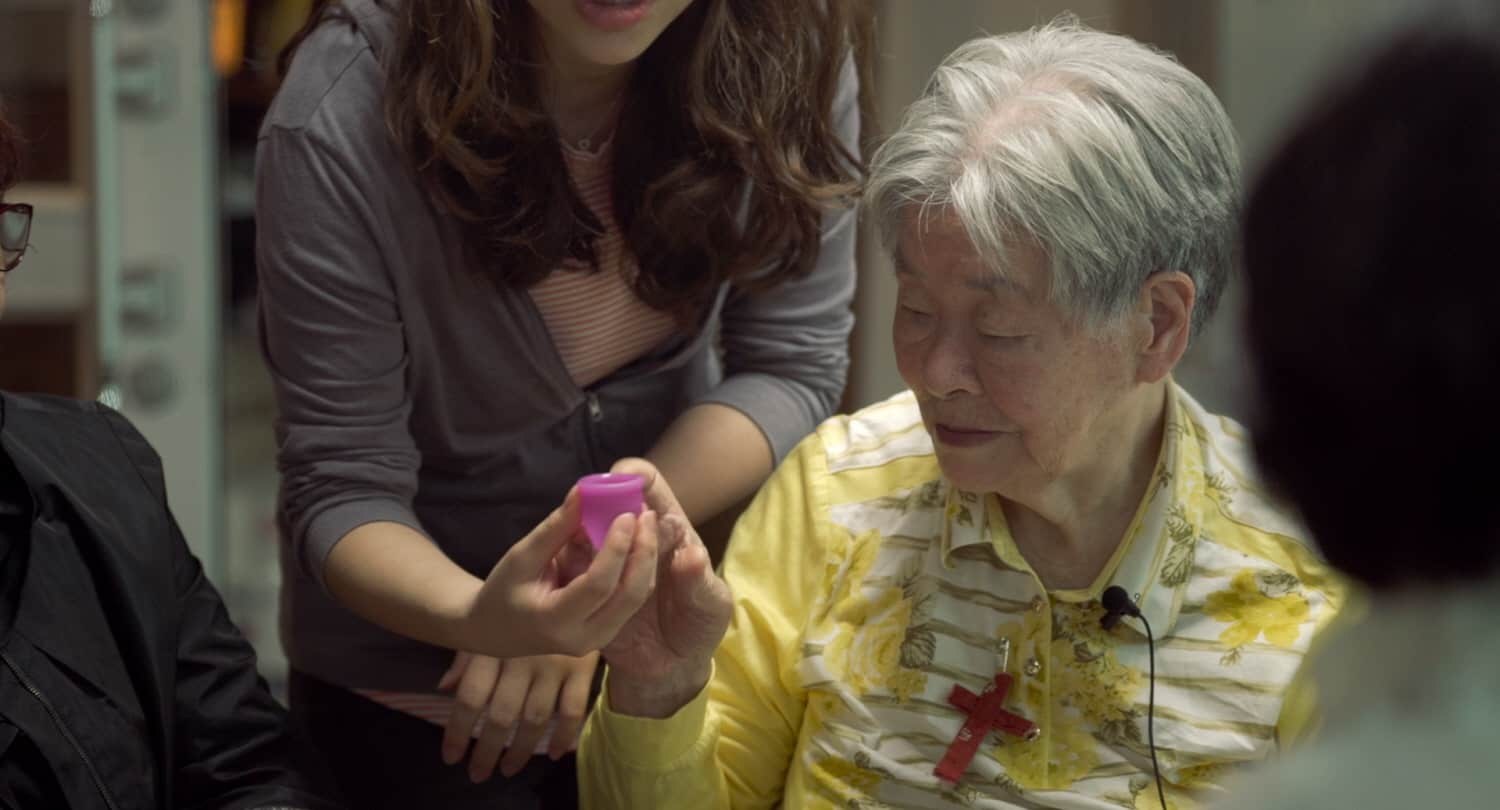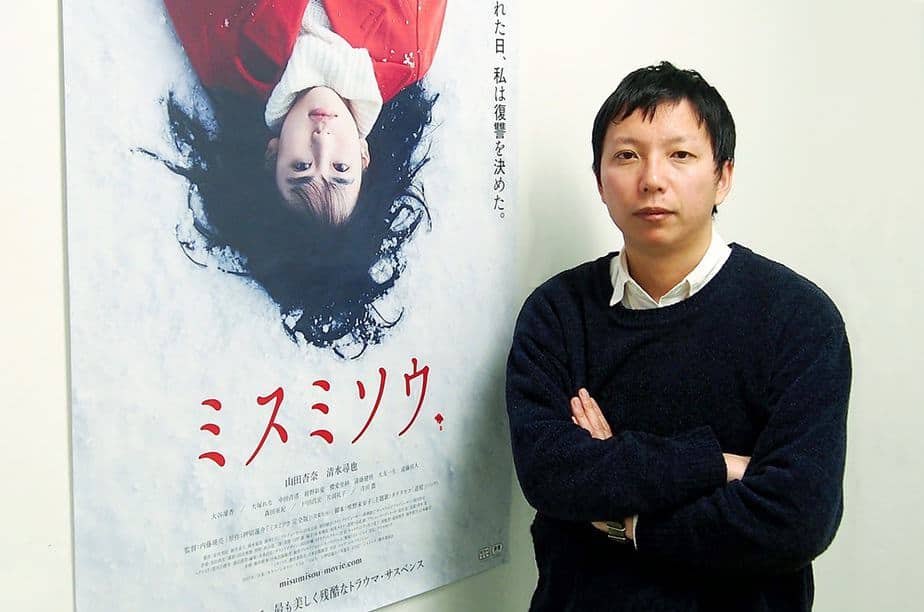Carmen Aumedes Mier is a director from Spain. She graduated in 2019 from from ESCAC (Cinema and Audiovisual School of Catalonia) She was selected for ‘Looking China Youth Film Program', which led to her shooting “I'm Too Busy” in Shanghai.
On the occasion of “I'm Too Busy” screening in Vienna Shorts, we speak with her about shooting a film in China, the concept of idols, humor, and many other topics.

Can you give us some info on your background on cinema (studies, how you started working as director etc.)?
I graduated in 2019 from ESCAC (Cinema and Audiovisual School of Catalonia) near Barcelona. I specialized in direction with the short film “Marleni, not Marlen” (now in distribution, not premiered yet!). Music is a huge part of my life – which I try to reflect in my work – and I've been learning guitar and singing since I was very young (performing at weddings, birthdays, funerals, is almost a hobby). Last September, I started studying for a combined degree on philosophy, politics and economy, in order to gain better knowledge of different subjects and gain self-confidence when holding a camera.
How did you end up shooting a movie with a Chinese cast? Where was the film shot?
I was selected for ‘Looking China Youth Film Program', a Chinese initiative which selects young filmmakers from different nationalities and invites them to create a short film in the country. Each filmmaker chooses a topic offering a personal point of view. Once I heard about the Jitterbug square dance in the city of Shanghai, the idea got me. I found that the picture of hundreds of women dancing together was highly mysterious and provocative. Shorty after, I found out they are pejoratively called ‘Dancing Aunties' and then I had no doubt whatsoever, this had to be my subject. What is pushing Shanghainese women to this dance so hard?
After choosing a main character, the process consisted of following her all around, basically with the propose of understanding her as deeply as possible and discover her most intimate link to Jitterbug. Therefore, all locations in the film are real and shot in Ouyang's neighborhood in Shanghai.
What was the inspiration behind the film? Why focus on the mother of the idol and not the idol himself?
Who says Ocean isn't the idol? My main aim is, precisely, to offer another kind of idol. We need, in my opinion, to rethink our idols, because our references determine our way of thinking and, consequently, our acts. Ocean's someone who can question the status quo, who can notice and learn from her acts. Maybe she doesn't bring money directly to our society (yet indirectly), and maybe she hasn't had the time and support to develop the classic superhero skills; perhaps she doesn't matter to anyone (but a jealous husband). Placing focus on those characters and realities is somehow, a way to draw attention to non-productive, but yet super necessary activities (a pandemic crisis is another way to do so…!).
Therefore, it becomes vital to put focus on women, not for being women, but for being an essential part of society, silently building the pyramid base and, mostly, on those who have had less options to choose whether they want to spend their whole lives caring for others.
The film seems to deal with the dysfunctionality of relationships, particularly of couples who have been together for many years. What is your opinion on the subject?
I've grown up in a dysfunctional family, but surrounded by ‘perfectly structured' ones. What's funny is that I wouldn't know that mine is “dysfunctional” if I hadn't heard so with words. My family structure didn't feel ‘dysfunctional', probably because the relationships behind were much more functional than many others. I guess that's what I learnt: there isn't a perfect way, as Woody Allen suggests in “Whatever Works”.
Dysfunctionality is, therefore, beautiful. I am also deeply interested in clumsiness, and it is riveting how clumsy we are at home, in our intimacy. I have no experience on long-term marriages … But a youthful opinion about the matter: the classical family structure is a closed disingenuous institution which works for just a few, depending on one's background, goals and personalities. Yes, it's built on beautiful values, but dangerously forcing ourselves to fit in -or setting too high expectations. Because it makes us dissatisfied and our minds less free.
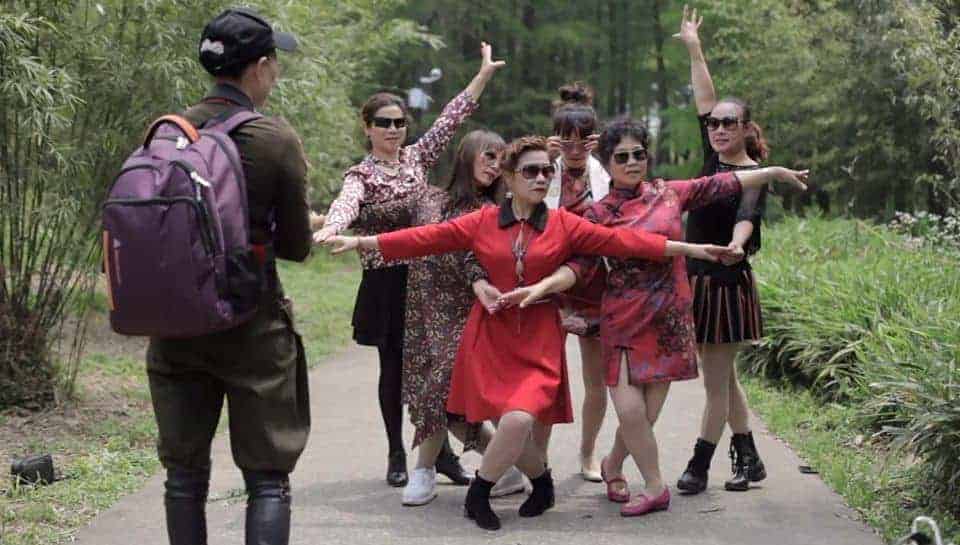
Despite the somewhat dramatic basic issue, the film is quite funny. Why did you choose this approach? Do you feel that people can use humor to speak about serious subjects?
They say hope is the last thing you lose. I guess it's true, but hope is for the future, and humor is, from a hedonistic perspective, a matter of the present. Humor boundaries are a dense, complicated and at the same time fascinating subject. Somehow, I ended up exploring them in films. They also say that “serious” is the opposite of “cheerful”, and not “funny”; so maybe this is all part of the same confusion, making people think that a serious topic isn't compatible with humor.
Funnily enough, making humor wasn't a goal but somehow it naturally came up. Humor is a pleasure-giving tool among many others, and, since I want people to enjoy themselves, it's one I like exploring. The debate gets complicated, though, when humor brings pain instead of pleasure … The sense of humor shouldn't have limitations, facts and news proof that freedom of speech is at risk. So its boundaries might be on the context where it takes form, not the content itself. However, it's easy to talk from a white female privileged-perspective, and there is plenty of humor in that.
Humour is, in my opinion, an agreement where one proposes and the other acknowledges by understanding; through these codes, the film shows up as a ‘gang' invitation where laughter is ‘the password'. It is of our responsibility, as filmmakers, knowing how inclusive this gang is. In fact, one of my fears while filming and editing “I'm Too Busy” was leaving the main character behind, regarding communication difficulties (because of language limitation) I tried to make sure we weren't creating a ‘code gap' between narration and Ouyang's reality and, as a consequence, being disrespectful with the tone itself.
Can you give us some details about the casting in the film?
During pre-production, I was certain: I needed to find someone willing to open her house, bathroom, bed and heart. All other characters would come up depending on our main character's life and needs. Since the very beginning, we searched for a documentary approach, that's why none of them had previous experience in film. They are, actually, her real husband and son – he's not famous on YouTube but he's still a dance teacher – and friends.
I only spent 25 days in Shanghai, so my challenge for the main character role was to find someone who was into Jitterbug and, secondarily, someone willing to allow us to get into her house, life and thoughts. Zhang, who is an incredible producer, got in touch with different square dancing groups and then we just leaped into them looking for our character. Because of her plain and very natural star-pose, Ouyang was the one.
I found the editing one of the best aspects of the movie. What was your approach in that regard?
I think it is important to have the editing process in mind while filming. I use to do quick-speed rhythms and times in film. But this time, there was something else: from the very start, I broke up the footage into pieces in order to design Ouyang's full universe and also be able to ‘fake' the narration, bringing to reality my mind's imaginary of Ouyang's reality.
Actually, if possible, I try to edit while I shoot, and I started to fragment the footage while filming everyday. For the first and last scene, though, Ocean starts a new path; somehow, she stops apologizing, and that's why the rhythm changes a little on that sequence.
Are you working on anything new at the moment?
I was supposed to go to China on February for a second round project with Looking China. This was cancelled because of the pandemic and I am still on stand by. In spite of the uncertainty I've been ‘spinning my brain' during lockdown and I'm developing a new project for a feature movie, a little undefined yet. If things go back (or forward?) to normal, I'll be directing a short episode this summer for a French independent series called ‘Grandma's Project', which is very exciting because it's about my grandma.




